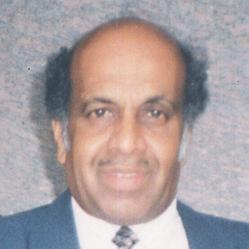
3 minute read
Philanthropic plans
from 2011-04 Sydney (2)
by Indian Link
Two of the world’s strongest patrons of charity are seeking India’s rich and famous to join them in uplifting its poor
BY NOEL G DE SOUZA
Bill Gates and Warren Buffet, two of the world’s richest men, are also two of the world’s greatest philanthropists. Bill Gates founded Microsoft, an IT giant which surged in value and dwarfed all other computer companies, whilst Warren Buffet has been one of world’s most astute investors. These two corporate giants have pledged the bulk of their fortunes towards charitable works. Gates and his spouse set up the Bill and Melinda Gates Foundation, the largest such enterprise ever known. Its objective is to provide healthcare and reduce extreme poverty. Warren Buffet tipped a great deal of value into that foundation by contributing shares from his Berkshire-Hathaway company.
The Bill and Melinda Gates Foundation funds education, health and agriculture. The Gates Millennium Scholars fund targets disadvantaged groups like Afro-American, American Indian, Asian, Pacific Islander American and Hispanic American. The Gates Foundation contributes US$800 million annually towards global health, besides funding the eradication of polio. The foundation is also helping to improve agriculture in Africa and is promoting rice research.
Gates and Buffett are in the mould of the best philanthropic tradition of the United States. That great tradition includes Henry Ford, who streamlined the manufacture of motorcars, John D. Rockefeller who made his fortune from oil exploration and John Carnegie, the steel magnate. They have all believed in promoting education as a first step.
sixth in the world and Mukesh Ambani, whose companies produce consumer goods has been placed ninth.
Very rich Indians are beginning to realise that India’s massive inequality is not just. Mukesh Ambani looks at India’s growth engine “as a heartless monster that leaves large numbers of Indians behind” and he believes that “there will be no peace if a billion plus people are discontented, deprived, unhappy and therefore, angry.”
Some of India’s premier business families like the Tatas and Birlas have a laudable record of setting up educational institutes. Amongst the Tatas best-known institutes are the Tata Institute of Fundamental Research, which pioneered nuclear and computing research in India, and the Tata Institute of Social Sciences which fosters “teaching in the areas of social work, social sciences, human resources management, health systems and allied fields.”
The Birla Institute of Technology and Science at Pilani in Rajasthan was set up to focus on science and technology. The origins of the Institute can be traced to the setting up of a school. The decision to establish a modern technological institute on the lines of the Massachusetts Institute of Technology was made by Ghanshyam Das Birla who needed trained engineers for his own industrial enterprises such as cotton mills.

Mukesh Ambani looks at India’s growth engine “as a heartless monster that leaves large numbers of Indians behind” and he believes that “there will be no peace if a billion plus people are discontented, deprived, unhappy and therefore, angry.”
Rockefeller believed that, “If the people can be educated to help themselves, we strike at the root of many of the evils of the world. … The only thing which is of lasting benefit to a man is that which he does for himself. Money which comes to him without effort on his part is seldom a benefit and often a curse.” He did not believe in handouts, but in helping humans to promote themselves. This can be considered as the core philosophy of American philanthropy.
Gates and Buffet are visiting India to persuade rich Indians to participate in philanthropy. Bill Gates is a long-time admirer of India’s prowess in the computer sciences. He has been encouraging very young Indians to study digital sciences. Warren Buffett has been apologetic that he has taken this long to visit India. They both realise India’s potential.
Forbes magazine has listed fifty Indians amongst the world’s billionaires. Lakshmi Mittal, the steel magnate has been placed
Azim Premji of Wipro, a prominent computer outsourcing company, ranked the 36th richest man in the world, recently pledged $2 billion to improve school education in India through the Azim Premji Foundation. The Azim Premji University in Bangalore will offer Masters degrees in education. The stated aim is to create “An outstanding learning environment, exposure to an exciting curriculum, exceptional faculty, a unique blend of theory and practice and a diverse student community.”
The Vishwa Bharati University at Shantiniketan began as a small ashram founded by India’s well-known poet Rabindranath Tagore on his family land. Tagore donated his own artworks and other collections to the University. It grew into a centre of learning for art, philosophy and agriculture, where eminent international scholars meet.
Before India took over Goa, students had to travel to neighbouring states for tertiary education. Soon after Goa became a part of India, the principal industrial houses of Dempo, Salgaocar and Chowgule which had made their fortunes from mining, rapidly set up several colleges that bear their names. The Salgaocar group also set up the Salgaocar Medical Research Centre.
Hopefully, Bill Gates and Warren Buffet will be able to induce more of India’s megarich to contribute to philanthropic works.









